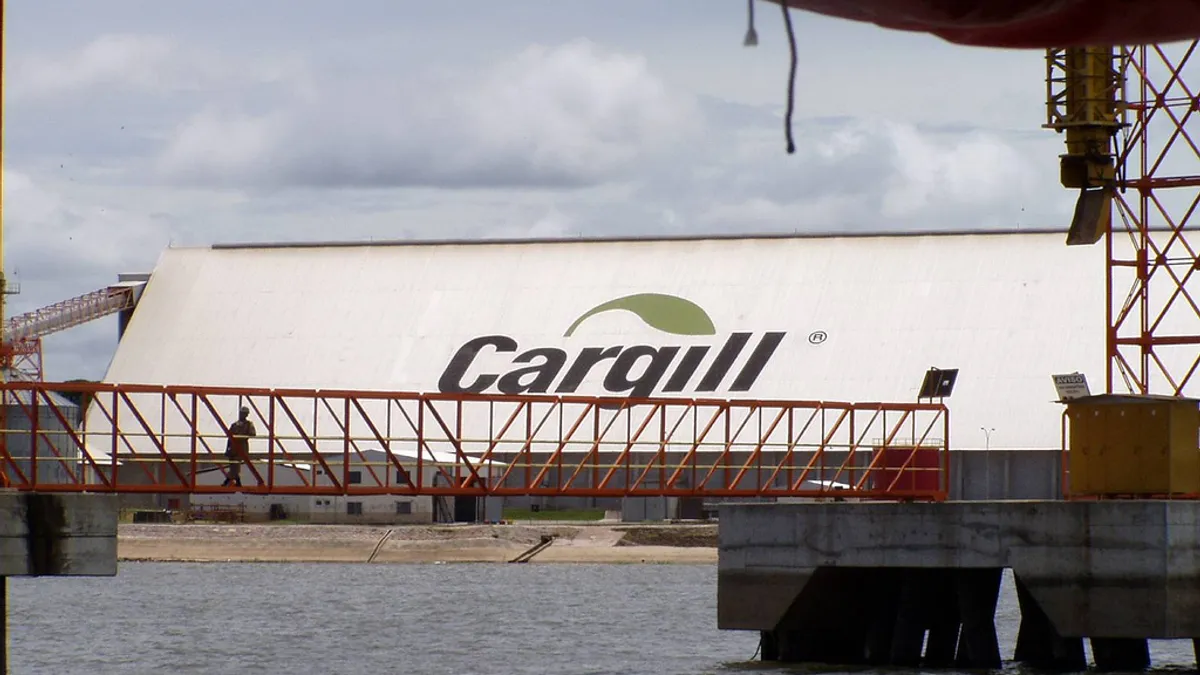Dive Brief:
- Cargill pledged to source 60% of its red seaweed supply from sustainable sources by 2025, in an effort called the Red Seaweed Promise. Red seaweed is vital in producing carrageenan, a common additive used to change the texture of dairy, confectionary and personal care products.
- The company plans to work with producers on "improving production and harvest practices" by providing training and tools to adopt sustainable practices.
- Cargill also wants to improve the transparency and traceability of its red seaweed supply. It has worked with the nonprofit Proforest to create an evaluation tool and conduct verifications in locations where it sources seaweed.
Dive Insight:
Cargill's focus on sustainability means a greater emphasis on practices that are good for the environment — seaweed is often grown in the ocean after all. But it also means being able to maintain production levels for those industrial customers who rely on carrageenan for their products.
“Today, these producers face multiple challenges, from climate change and extreme weather events to inefficient farming and harvesting practices, which have a significant impact on the quality of red seaweed," Sebastien Jan, Cargill seaweed strategic sourcing project manager, said in a statement. "The Red Seaweed Promise supports producer’s prosperity by providing the training, coaching and tools producers need to adopt environmental and safe production best practices while committing to sustainable marine and coastal ecosystems.”
The World Bank has said the growth of the seaweed industry could have a positive impact on the economy of tropical countries where it often occurs. The Red Seaweed Promise supports the UN Sustainable Development Goals, which has objectives related to inequality, climate and sustainable communities.
Consumers are increasingly concerned about where their food originates. A 2017 poll by Response Media found that 70% of respondents said their purchases are always or often influenced by transparency.
Companies are increasingly trying to give consumers this transparency they demand. In fact, this isn't the first sustainability program undertaken by Cargill. The company also launched the Cocoa Promise in 2012. Other cocoa producers including Nestlé, Lindt, Mars and Mondelez have undertaken similar efforts, but the success of these programs has been questionable.














